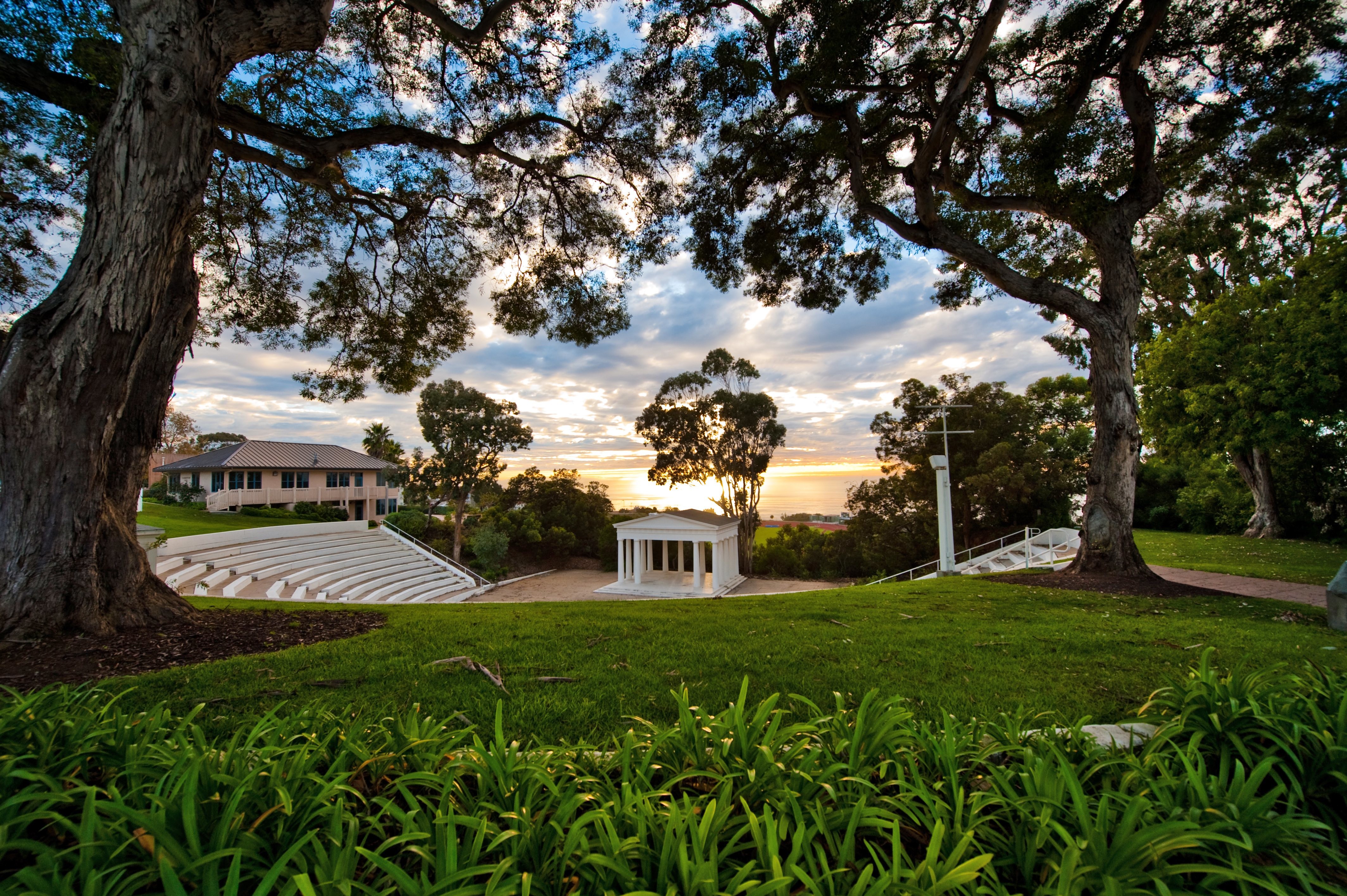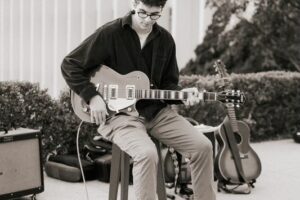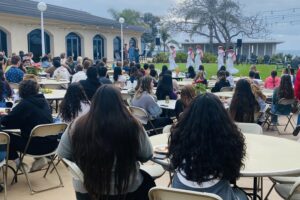By: Aliah Fabros
Cathy Gallagher is prepping a Point Loma breakfast sandwich in the kitchen when a Jennings House regular pops into the eatery. She darts out from behind the counter and greets the customer by name. He smiles and shuffles to his regular seat by the window. Beneath his sneakers, the floorboards creak like the hardwood of your childhood home. He asks Gallagher about her new neighbors and without being prompted, she offers the day’s selection of scones.
He’ll take a blueberry scone and his usual coffee.
Jennings House Eatery, situated at the corner of Rosecrans and Talbot, owes its homey atmosphere in part to the history of the building it occupies. The cafe resides inside the oldest house in Point Loma, built by Frank and Inez Jennings in 1886.
According to the Ocean Beach Historical Society, Frank was the San Diego County Sheriff from 1895-1902. During this time, Frank and Inez had two children – both of whom tragically passed away under the age of two. Gallagher said Frank Jennings was a philanthropic man with business acumen and a dream to develop the surrounding area in hopes that it might become the up-and-coming place in Point Loma.
During the process of turning the house into a cafe, Gallagher did a deep dive into what was going on in the Point Loma community during the very late 1800s and early 1900s. According to Gallagher, this rabbit hole of research led her to photographs and article clips that captured a vibrant community: from old car races that once sped down Rosencrans Street to the thriving Portuguese community that hosted Festa parades in the fishing village on Scotts Street.
She decorated the eatery with these findings so customers could learn more about the history of the house and the surrounding Point Loma area. During the COVID-19 pandemic, Jennings House Eatery partnered with the La Playa Trail Association (LPTA). Downstairs, the LPTA has hung displays showcasing the local history.
The story behind how Cathy Gallagher came into the cafe business is as almost as surprising and rich as the history of the building; it all began in a New Jersey hair salon.
Fresh out of high school, Gallagher decided to become a hairstylist.
“It wasn’t a passion or anything at the time,” she said. “But it was a good way to get a career in a year, without committing to four years of college.”
By the age of 23, she was promoted to manager of a salon, and went on to work there for 18 years. In 2003, Gallagher and her family moved to San Diego. While waiting to get her license to cut hair in California, Gallagher took a job in Human Resources at Point Loma Nazarene University. She worked at PLNU for 14 years.
During her time at the university, Gallagher said she earned her bachelor’s degree in business administration and worked in a variety of departments, from the Fermanian School of Business to supporting students in their search for career opportunities.
Gallagher said students who are unsure what they want to do with their careers should be patient and easy on themselves. Passions change, and even if you feel like you know the answer, that doesn’t mean it’s going to be the answer for the rest of your life, she said.
In 2016, Gallagher said she began thinking about leaving PLNU and doing something else.
“A small restaurant, cafe kind of a place is something I’ve wanted to do since I was in my early 20s,” she said. “And then an opportunity came up to purchase this and it was up for sale and so I thought: okay, well, I guess this is career number three! And I left PLNU in 2017 and opened this.”
Despite now working in her dream job, the realities of running a small business haven’t always been easy, Gallagher said.
She said the most difficult part of being in this industry is providing service to people in the best way that you can with what you have at that time.
“So many times there are variables in this business where the customer doesn’t know what’s happening. They don’t know if you’re short-staffed, they don’t know if you just cut your finger open in the back room, they don’t know if my mother just passed away. They don’t know what’s happening behind the scenes that can impact what’s happening on the floor,” Gallagher said.
Gallagher recalls the challenge of navigating relationships during the COVID-19 pandemic. She said tensions were high and it was difficult to create a comfortable environment. due to the poor ways she and her staff were treated.
“It took me a while to adjust after we re-opened the inside, to come down out of that anxiety, because there was so much pent-up frustration with how the staff and I were treated during that period,” she said. “I’m really glad that we’re out of that now and we can get back to chill, and relaxed, and love everybody, and care about everybody and not feel that constant threat and tension.”
Gallagher also said she needed to close down the upstairs seating area to prevent students from taking up multiple tables — buying nothing but a $3 cup of coffee during their six-hour study session. Though Gallagher loves having students in the cafe, it simply wasn’t a financially sustainable model, she said.
However, there are desks upstairs that can be rented for the entire day for $20 for studying or working. This purchase comes with complimentary house coffee and 15% off anything on the menu.
Mara Jurgenson, a third-year student at PLNU, said she is grateful for Gallagher’s stricter rules on studying and technology.
“Jennings is where I go with friends to talk and catch up,” Jurgenson said. “The atmosphere doesn’t feel centered toward productivity. Everyone is talking with someone across the table. Everyone is in the present.”
Gallagher said she has always wanted her business to have a real community feel.
“In all my careers I’ve tried to create a familial type of environment. Even when I was a hairstylist, when I was at PLNU and I worked a lot with students — I wanted an environment where we could talk about anything and was a safe space for any conversation and no one was going to be judged or threatened or talked down to.”







